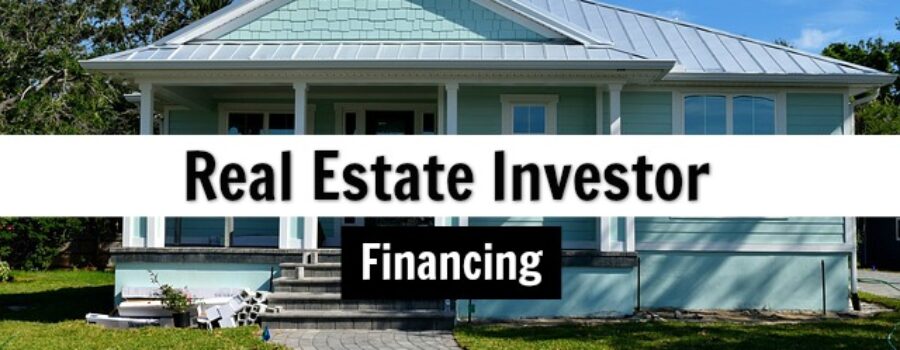Getting approved for rental property financing can be done several ways with different loan product types. In today’s post we’ll go through each option available in today’s mortgage market.
3 Ways to Get Approved for Rental Property Financing
Starting with the most popular (and least talked about) rental property financing type – the cash flow mortgage.
Cash Flow Mortgage
A cash flow mortgage allows investors to get approved for funding based on the cash flow of the property, NOT personal income.
This is the perfect option for any real estate investor who shows low-income on tax returns due to write-offs. The reason its perfect is because on the cash flow mortgage, tax returns are not reviewed. In fact no personal income is review.
Because again, the lender will review your ability to repay the loan based on the property cash flow, not your personal income.
This since it’s based on property (or collateral) performance, this is treated more like a business loan than a residential loan.
With that said, you’ll still need to meet credit and asset requirements. It is still a fully underwritten loan, the only difference is the way the income is approved.
When the appraisal is ordered the lender will also order a 1007 rent schedule to get an opinion of what fair market rent is. If the property pays for itself after factoring in mortgage, taxes, insurance, and HOA dues – then you should be in good shape from an income approval standpoint.
The other huge benefit to this rental property financing product is that there is no limit to how many properties you currently have financed. That is a big deal because with the “traditional” mortgage type, the max number of financed properties is 10. The cash flow mortgage is a big win for real estate investors looking to grow their portfolio.
Things to keep in mind with the cash flow mortgage:
- Approval is based on property cash flow, NOT personal income
- Minimum credit score is 600
- Available on purchase, refinance, and cash out refinance
- Up to 80% loan to value ratio
- Minimum loan amount is 75K
- Max loan amount is 2.5M
More on cash flow mortgage here.
Bank Statement Mortgage
A bank statement loan is another alternative rental property financing type which allows business owners to get approved without tax returns.
With a bank statement mortgage the income is approved based on deposits on bank statements.
This is a great option for self-employed borrowers who make sufficient income in reality, but show low-income on tax returns due to deductions.
This is for business owners (or private contractors) only – not for W-2 employees.
The lender will review 12 months bank statements in order to get a feel for what your deposits and expenses are.
Must have been in business for at least 2 years.
Personal Account
If you pay yourself from a business account to a personal account, all of the deposits into the personal account should be usable when calculating income.
You do not need to be 100% owner of the business if using personal bank statement to qualify.
However, if you use the personal account solely to operate your business, then an expense factor will need to be included when calculating income in order to account for overhead and expenses.
For simplicity purposes, 50% expense factor would typically be used. But if your CPA can confirm the actual expense factor, then that should be applied accordingly.
Example: if your 12 months bank statements show 200K in deposits, and your CPA confirms your expense factor should be 35%, then your usable income would be 130K.
Any large or unusual deposits must be verified. If you typically get 10K in deposits per month, but then have a 50K deposit, there will need to be a paper trail to get confirmation that it was business related in order to have that considered in income calculation.
Business Account
If you are looking to use a business account to qualify, you must be 100% owner of the business.
The same principles apply regarding expense factor. 50% deduction to account for expenses, or CPA to confirm what actual expense factor is.
A CPA or tax preparer would produce a written statement specifying the actual expense ratio of the business (including cost of good sold and all other business expenses) based on the most recent year’s filed tax returns.
***Side note to keep in mind – Lenders will not use bank statement loan product for real estate investors who do not have a business established. If your business is solely real estate investment property income – you need to have a business established. Owning real estate itself will not be sufficient evidence of being in business for 2 years.
More on bank statement mortgages here.
Profit and Loss Statement
For well qualified borrowers (high credit, strong equity), getting approved with a profit and loss statement may be an option.
If you have a self-prepared year to date profit and loss statement to go along with 2 months bank statements, the income may be calculated accordingly.
The lender will evaluate your 2 months bank statement and compare that with the P&L. They’ll use the lower of the 2 in order to calculate income.
If the P&L is prepared by your CPA, the bank statements are needed to calculate income.
This product is not common, and not available in all states. Feel free to contact me to see if you qualify.
Full Doc – Traditional
In the traditional mortgage lending world, you would be best to do a full documentation loan. This is because the rate/costs are most competitive.
The down side, is that there are more restrictions on income and number of properties financed when seeking rental property financing on a traditional mortgage.
With a conventional loan, the max number of properties you can have financed is 10. So if you are an investor looking to grow your portfolio, you will be limited.
In addition if you own multiple properties, you’ll need to provide tax returns to show detailed description of write-offs. This creates friction with many real estate investors and self-employed borrowers. For that reason, the products listed above are great alternatives.
In Summary
There are several ways to get approved for rental property financing:
- Cash Flow Mortgage – approval based on property cash flow
- Bank Statement Mortgage – approval based on bank deposits
- Full doc/traditional Mortgage – Conventional approval based on traditional lending guidelines
If you’re looking for simplicity, the cash flow mortgage will typically be your best bet, but every scenario is unique.
I invite you to reach out.
Get your questions answered.
We have been able to help many real estate investors with unique needs when other lenders said it couldn’t be done. If we cannot help, I should be able to point you in the right direction at the very least.














What questions do you have?